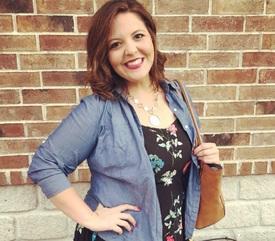Has a early sleep routine made a difference to your weight?

cyaneverfat
Posts: 527 Member
Has going to bed early and getting up early helped your eating patterns and weightloss?
Currently, I go to bed between 10pm and 2am and get up at about 11:30am. I've been on heavy medications for my mental health.
Hoping to start going to bed between 8:30pm and 9pm and getting up at 5am, as well as banning the tv during week nights.
What has worked for you?
Currently, I go to bed between 10pm and 2am and get up at about 11:30am. I've been on heavy medications for my mental health.
Hoping to start going to bed between 8:30pm and 9pm and getting up at 5am, as well as banning the tv during week nights.
What has worked for you?
1
Replies
-
I've also been a late night overeater/snacker/binger. Gonna try and start staying in bed, even if I can't sleep.0
-
I'm a nature night owl but get up before dawn for work, this has been my schedule for years, after years of graveyard shifts. Early nights have nothing to do with my weightloss this last year. Logging my food and getting more exercise do.2
-
Since the COVID lockdown started back in March, my schedule has become bed at 11:30 and up at 7:30. I've been losing at a much better rate than when I was going to bed and getting up earlier, but I don't necessarily think it has anything to do with my sleep schedule. YMMV.0
-
I do like going to bed early, and getting up early, but that's just a personal preference. That hasn't made a huge difference in my weight, but logging in my calories and sticking to healthy foods, and getting my exercise in is what has helped me. For years I've been getting up early and getting my exercise in, and for most of that time, I only saw a little bit of progress each year. It was when I discovered that diet made all the difference that I started seeing a huge difference in my weight. Growing up not knowing much about nutrition, it took me about a year until I moved out to get that together. That, and portion sizes. Heck, I'm still figuring out my nutrition, and trying to get my macros all figured out.
So, keep a sleeping schedule that works for you. If it so happens that going to bed early and getting up early makes a difference because then you're able to exercise and keep your food consumption in check, then do it. If it doesn't make a huge difference, then don't force yourself. Do what works for you.0 -
Going to bed at a decent hour makes it a lot easier for me to consistently get in my early AM workout, which I think helps keep me on a better track all day long. In that sense, it has made a difference for me.
Also, when I'm well rested, I have fewer food cravings, specifically for sweet stuff.
I don't think it has an impact for me BEYOND basic calorie control, but it makes the calorie control easier.1 -
I think sleep quality is more important than the time that you do it, and of course getting enough sleep. If I'm tired, I'm much more likely to make poor choices or be lazy with my logging.
1 -
I think that waking up earlier just helps me get my mind settled before work. I hate rushing around in the morning and find myself to be much more at peace if I've had a good hour to wake up, drink my coffee and read.
I always push the limits... wanting to stay up a littlllllle later and sleep a little later and eventually I have to do a reset. This is what helps me:
-Wake up early no matter what. When your alarm sounds, don't even argue with yourself just hop up. This will make you more tired the next day but it will be easier to go to bed earlier.
-Be realistic... If you can do 5am then great. But if you find yourself struggling, start smaller. Maybe at 8am first... then earlier week by week.
-Use the time change in November. When the time changes, continue waking up earlier rather than using it to sleep an hour late.
Currently waking up at 6am, but my goal is to wake up at 5!0 -
I went to bed at 8:30pm last night and took at least half an hour to fall asleep. Got up about 9am this morning. My alarm went off at 5am but it was too cold to stay out of bed.0
-
Getting enough sleep helps with my adherence to calorie goals. It doesn't seem to matter when I get that sleep.1
-
Getting enough sleep and a relatively consistent routine has helped a lot. My sleep schedule is not what I would prefer but is what I need to do for work.1
-
So before pandemic, I was in bed at 8:00-8:30pm and up by 4:30-5:00am. I would pack my lunch, take an almost two hour commute to work, eat lunch at work, another two hour commute back, to cook and eat dinner.
Now I’m up until 10pm and midnight and awake at 7:00am. Until I started tracking CICO I was not losing any weight.
I find on the weekends, when I sleep in until noon/1pm I have a tendency to eat less calories for the day. This is especially true on Sunday when I know I can’t sleep until noon because I have to be up for work on Monday.
So if anything, staying up late/sleeping in has benefitted me more than going to bed early/waking up early (from a pure numbers standpoint).1 -
For me the more erratic and poor my sleep, the faster I seem to lose. I typically sleep from 1-5am or 1-3, 5-7am. Uch. This also correlates with getting up more often to feed my baby so that probably has something to do with it.3
-
If I get adequate sleep (quality and quantity), it's easier to stick to a calorie goal. (Fatigue kicks my self-control in the teeth, basically.) More obviously, when I'm energetic (not fatigued), I'm more likely to be active in daily life (rest less, do more) and bring more energy to workouts, which burns a few more calories.
I'm a night owl, and retiree. When I don't have to get up earlier, I revert to something like a 2AMish to 10AMish sleep schedule, sometimes even later. During the summer, I usually row (on water) in the AM multiple days a week, so usually sleep more like midnight (on a good day!) to 7AM then.
It doesn't make any difference, that I can see, whether I sleep later or earlier, as long as I get adequate sleep. .1 -
There's a correlation between my sleep pattern and my energy levels but weight control is a separate and conscious decision. Feeling more energetic does have an impact on my non-exercise activity but in reality when I do more I also eat more.
But I find weight maintenance far easier and more enjoyable on a big calorie allowance boosted by high activity and a big exercise volume so there is a correleation between sleep / lifestyle patterns and happiness.
My highest energy levels are between 11am and 11pm and having retired a couple of years ago I can now sleep in my preferred pattern which is late to bed and get up about 8am (no alarm clock is a joy!). It helps my exercise performance in that I can to a far higher degree plan my day rather than be driven by someone else's schedule. Most of my two careers involved shift work, long hours or early starts for commuting and having either poor sleep or getting up earlier than I would choose - a lot of the time I felt sleep deprived or just constrained by the clock.3 -
Sleeping solidly for 8 to 10 hours a night works very well for me. Doesnt matter when it is as long as it is consistent though. I cant eat when I'm asleep and im less hungry when I'm rested.1
-
I nap 1-2 hrs during the day and only sleepanout 5-6 hrs at night.
This apparently has no effect on my wt, given that I've been able to maintain my wt between 155-160 over the past 5 yrs.2 -
My results are the same as what has been already said. Sleep quality is a factor but not on the physical process of weight loss. The better I feel the easier everything is. The worse I feel the more I have to rely on discipline.
To keep it in perspective though I slept fine last night but I am sore and a little miserable today from doing too much yesterday. As a result today has been tougher. Not impossible but tougher.2 -
I think so. I’ve gotten a new job in the last month and a half where I have to wake up early and going to sleep earlier prevents me from snacking at night and I think I’ve been losing weight faster2
-
Having a regular sleeping pattern has definitely helped me. I don't think the specific timing of it makes any odds as long as you're getting a good night's sleep and have a regular sleep schedule.2
-
I had a chronic lack of sleep before Covid-19: I went to bed around 11.30PM and woke up at 6AM on work days.
Since working from home full-time I'm averaging 8hrs of sleep a night.
While I certainly feel better, it hasn't mattered for my weight loss.2
This discussion has been closed.
Categories
- All Categories
- 1.4M Health, Wellness and Goals
- 398.1K Introduce Yourself
- 44.7K Getting Started
- 261K Health and Weight Loss
- 176.4K Food and Nutrition
- 47.7K Recipes
- 233K Fitness and Exercise
- 462 Sleep, Mindfulness and Overall Wellness
- 6.5K Goal: Maintaining Weight
- 8.7K Goal: Gaining Weight and Body Building
- 153.5K Motivation and Support
- 8.4K Challenges
- 1.4K Debate Club
- 96.5K Chit-Chat
- 2.6K Fun and Games
- 4.8K MyFitnessPal Information
- 18 News and Announcements
- 21 MyFitnessPal Academy
- 1.5K Feature Suggestions and Ideas
- 3.2K MyFitnessPal Tech Support Questions

















